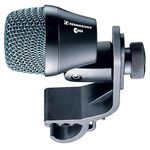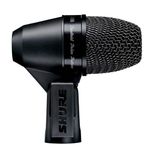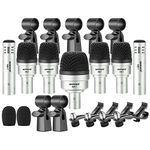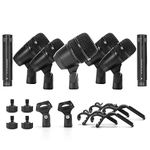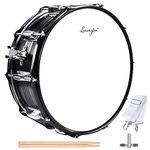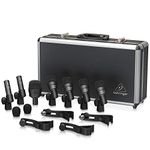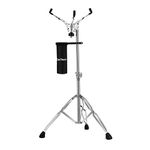10 bestSnare Drum Micsof February 2026
112M consumers helped this year.
1
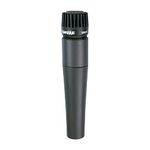
Shure SM57 Dynamic Instrument Mic - Professional Quality and Versatility for Live Performances and Recording - Contoured Frequency Response, Durable, Ideal for Drums, Percussion, Amplifiers (SM57-LC)
Shure

9.9
2
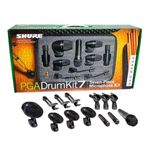
Shure PG ALTA 7-Piece Drum Microphone Kit for Performing and Recording Drummers - Includes Mics, Mounts and Cables with options for Kick Drums, Snare, Rack/Floor Toms, Congas and Cymbals (PGADRUMKIT7)
Shure

9.8
3
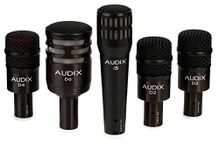
Audix DP5A Professional 5-Piece Drum Microphone Package, XRL Stage Studio Dynamic Mics Kit, 5 Cardioid Hypercardioid Mic Instrument Pack for Kick Snare Rack Toms, Floor Tom Set Case and Accessories
AUDIX

9.6
4

Shure BETA 98AMP/C Drum Microphone - Miniature Cardioid Condenser with Flexible Gooseneck, Integrated XLR Preamplifier, A75M Microphone Mount, Snap-Fit Windscreen - Ideal for Snares and Toms
Shure

9.4
5
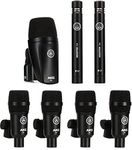
AKG Drum Set Session 1 Microphone Set
AKG

9.1
OtherUp to 8% off
6
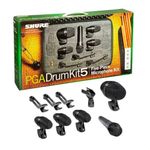
Shure PG ALTA 5-Piece Drum Microphone Kit for Performing and Recording Drummers - Includes Mics, Mounts and Cables with options for Kick Drum, Snare and Tom (PGADRUMKIT5)
Shure

8.9
7
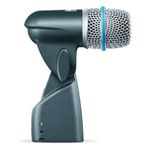
Shure BETA 56A Snare and Tom Microphone - Supercardioid Swivel-Mount Dynamic Drum Mic for Close Miking, Equipped with Shock Mount for Sound Isolation, Dynamic Locking Stand Adapter, Steel Mesh Grille
Shure

8.6
8
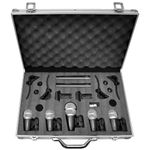
Pyle 7-Piece Wired Dynamic Microphone Kit - Bass, Tom/Snare & Cymbals Mic Set for Drums, Instruments or Vocals w/ Case
Pyle Pro

8.3
9

Shure BETA 98AD/C Drum Microphone - Miniature Cardioid Condenser Mic with RPM626 In-Line Preamplifier, A98D Drum Mount for Secure Placement and C98D 15' Cable - Ideal for Snares, Toms and Percussion
Shure

8.0
10

E604 Dynamic Cardioid for Snare and Toms
Sennheiser

7.8
A Guide to Selecting the Best Snare Drum Mics
Choosing the right snare drum microphone is essential for capturing the crisp, punchy sound of your snare in both live and studio settings. The snare is a central part of any drum kit, and its sound can make or break a drum mix. When picking a snare drum mic, you should consider how you plan to use it, the sound you want to achieve, and the environment in which you'll be recording or performing. Understanding the key specifications will help you find a mic that matches your needs and brings out the best in your snare drum.
Microphone Type (Dynamic vs. Condenser)
The type of microphone refers to how it captures sound. Dynamic microphones are rugged, handle high sound pressure levels, and are less sensitive to background noise, making them a popular choice for snare drums, especially in live settings. Condenser microphones are more sensitive and can capture more detail, which can be great for studio recordings but may pick up unwanted sounds in noisy environments. If you play live or want a durable, reliable mic, a dynamic mic is usually best. If you’re recording in a controlled studio and want more detail, a condenser might be worth considering.
Polar Pattern
The polar pattern describes how a microphone picks up sound from different directions. Cardioid is the most common pattern for snare mics, as it focuses on sound from the front and rejects noise from the sides and rear, helping to isolate the snare from other drums. Supercardioid and hypercardioid patterns offer even more focus but can pick up some sound from directly behind the mic. If you want to minimize bleed from other drums, stick with cardioid or supercardioid. For more natural room sound, an omnidirectional pattern could be used, but it’s less common for snare mics.
Frequency Response
Frequency response tells you which frequencies the microphone can pick up and how it handles them. A good snare mic should capture the snap of the drumstick (high frequencies) and the body of the drum (mid frequencies). Some mics are designed with a slight boost in the upper midrange to emphasize the snare’s attack. If you want a crisp, cutting snare, look for a mic with a pronounced high-frequency response. For a warmer, fuller sound, a flatter response might be better. Think about the style of music you play and the snare sound you prefer.
Maximum SPL (Sound Pressure Level)
Maximum SPL is the highest volume level a microphone can handle before it distorts. Snare drums can be very loud, so you need a mic that can handle high SPLs without breaking up. Most dynamic mics can handle high SPLs, making them a safe choice. If you play hard or use rimshots, make sure the mic’s maximum SPL is well above the typical volume of your snare.
Size and Mounting Options
The physical size of the mic and how it mounts to the drum are important for positioning and convenience. Smaller mics are easier to place close to the snare and are less likely to get in the way of your playing. Some mics come with clips that attach directly to the drum rim, while others require a separate stand. If you have a crowded drum kit or move your kit often, a compact mic with a built-in clip can make setup easier.
Durability
Durability refers to how well the microphone can withstand the rigors of regular use, including accidental hits from drumsticks and the general wear and tear of gigging or studio work. Dynamic mics are generally more robust, while condenser mics can be more delicate. If you’re gigging or expect the mic to take some abuse, prioritize a model known for its toughness.
Best Reviews Guide Newsletter
Get exclusive articles, recommendations, shopping tips, and sales alerts
Sign up for our newsletter to receive weekly recommendations about seasonal and trendy products
Thank you for subscribing!
By submitting your email address you agree to our Terms and Conditions and Privacy Policy
